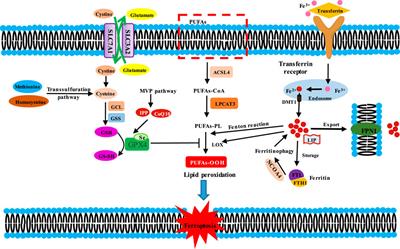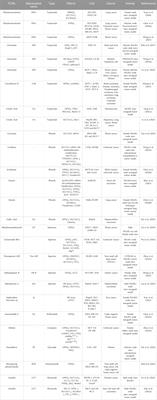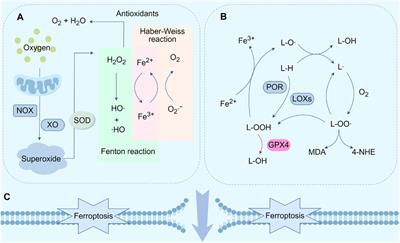REVIEW
Published on 03 Jul 2024
The metabolites from traditional Chinese medicine targeting ferroptosis for cancer therapy

doi 10.3389/fphar.2024.1280779
- 1,724 views
- 2 citations
3,738
Total downloads
10k
Total views and downloads
REVIEW
Published on 03 Jul 2024

REVIEW
Published on 23 May 2024

REVIEW
Published on 22 Apr 2024

REVIEW
Published on 16 Jan 2024
